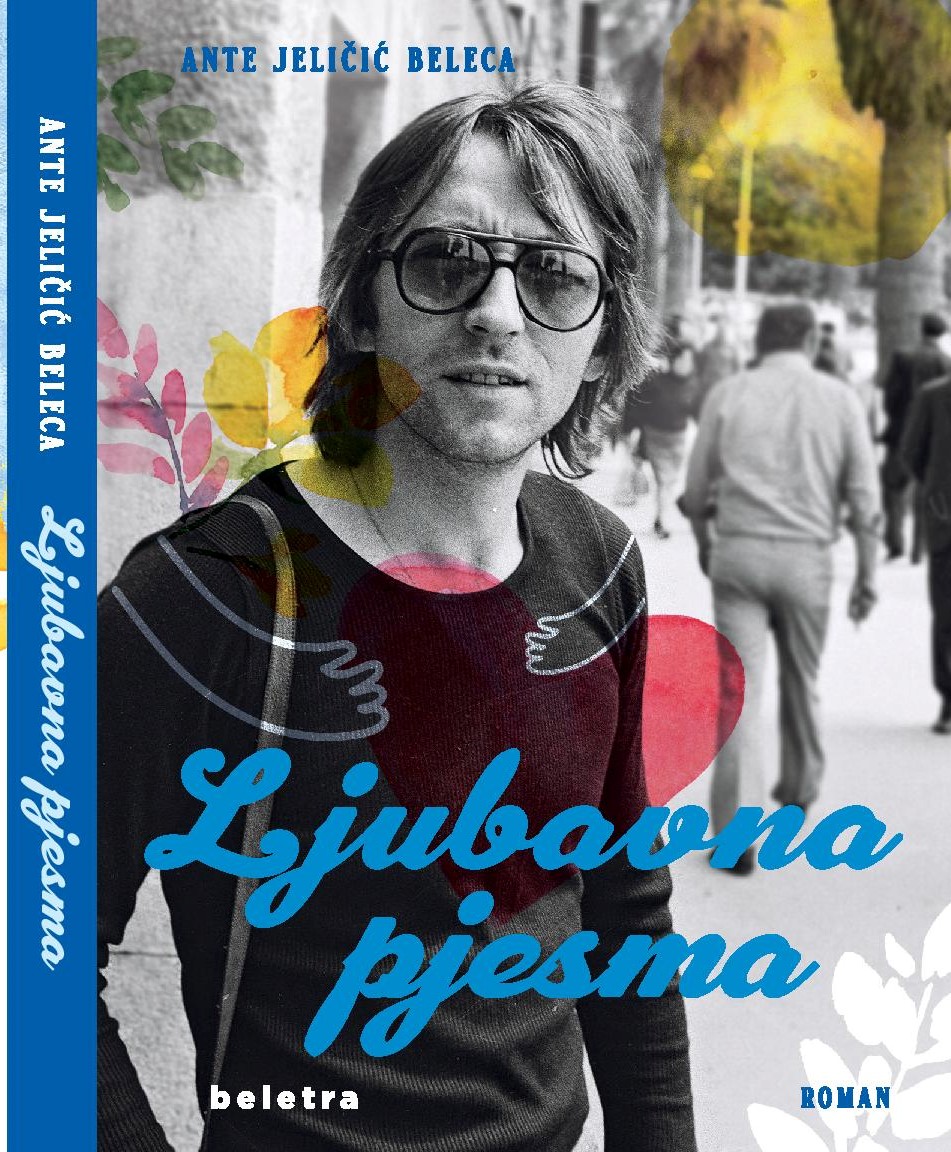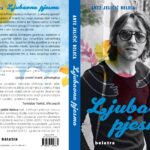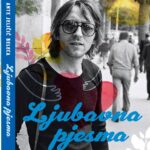
Title: “Love Song” by Ante Jeličić Belece
A love song that connects generations – St. Ivan Square, August 22, 2023, at 8:00 PM.
The timeless refrains of Oliver resonate through Ante Jeličić Belece’s novel “Love Song,” whose main character is a young man who shares his emotions only with those who understand Dalmatia, its islands, and the music of Oliver. The setting is in Death Valley, California. Bud Bulin survives by singing and playing in smoky clubs and engages in acting – even though he doesn’t know how to act. His acting is admired by the American film establishment because of its authenticity and uniqueness, as he is an irresistible, introverted emotional person with big dark eyes. However, few know that Bud acts because he refuses to succumb to the hypocrisy of a world where most people survive by pretending to be something they are not. Mysterious and closed-off, Bud reveals that he is from Dalmatia only to those who understand Oliver’s songs, which tell the story of Bud’s entire life – unfaithful love, the joy of fatherhood, and then the impossibility of realizing his dreams and his enduring love pain. With Dalmatia in his heart, seagulls, sun, sea, nostalgia, and Oliver’s refrains accompany Bud on his American journey to find inner peace and his place under the sun. In a world that doesn’t understand him and to which he refuses to adapt, Bud searches for his own song, a resonance with his emotions, and this quest leads him to encounters with people who provide answers and lead him to self-discovery.
Ante Jeličić Belece keenly listens to his emotions and guides his protagonist from rebellion and resistance due to betrayed love to self-acceptance and opening his heart to others. Though his writing possesses a solid and thoughtful, balanced and expressive sentence structure – possibly shaped by classic literature – Ante Jeličić Belece is a young writer in strong harmony with the spirit of the times. His novel is therefore fragmented, filled with refrains, reminiscences, verses, and quotations. Hemingway, Elvis, Dylan, Hesse, Tennessee Williams, B. Springsteen, and Oliver, along with Gibonni, Daleka obala, Popadić, Dino Dvornik, and Brando – verses in both English and Croatian, movie dialogues, and teachings and wisdom typical of the New Age era and electronic media – due to the abundance of quotations, the novel “Love Song” is directed toward a young audience grown up in the multimedia era, who intensely delve into their emotions and seek answers around them that lead to understanding, self-awareness, and adequate expression of emotions.
“Ljubavna pjesma” (“Love Song”) is a combination of a novel about spiritual growth like Siddhartha and American road novels, with a strong imprint of the most beautiful Dalmatian refrains and the captivating voice of Oliver, who knew how to express tenderness, infatuation, and love pain in a powerful and masculine way. The choice of famous literary, acting, and singing influences shows that masculinity is an important theme of Ante Jeličić’s novel, where he finds a way to express sorrow and pain without vindictiveness, and perseveres in his search for new tenderness and wholeness within the baritone emotional spectrum.
Due to the presence of the great and timeless Dalmatian evergreens by Oliver Dragojević, profound contemporary themes of love and self-awareness, typical quotes from the New Age era and electronic media, modern fragmented structure, and the author’s high literary skill and expressiveness, the novel “Love Song” has the potential to be translated into English and targeted to tourists visiting Dalmatia. Saturated with the scent of the sea and pine trees, the sound of waves and seagull cries, the novel “Love Song” could also serve as a romantic Dalmatian postcard that communicates with a global audience. However, the main theme of the novel is not just the tourist aspect but also the psychological one, as it guides readers, especially the young ones, to listen to their own feelings, find balance in their relationship with themselves and others, pursue personal development, and ultimately find their own path or “song,” which the author himself deems most important!
Sandra Pocrnić Mlakar, psychology professor/editor in publishing – translation







